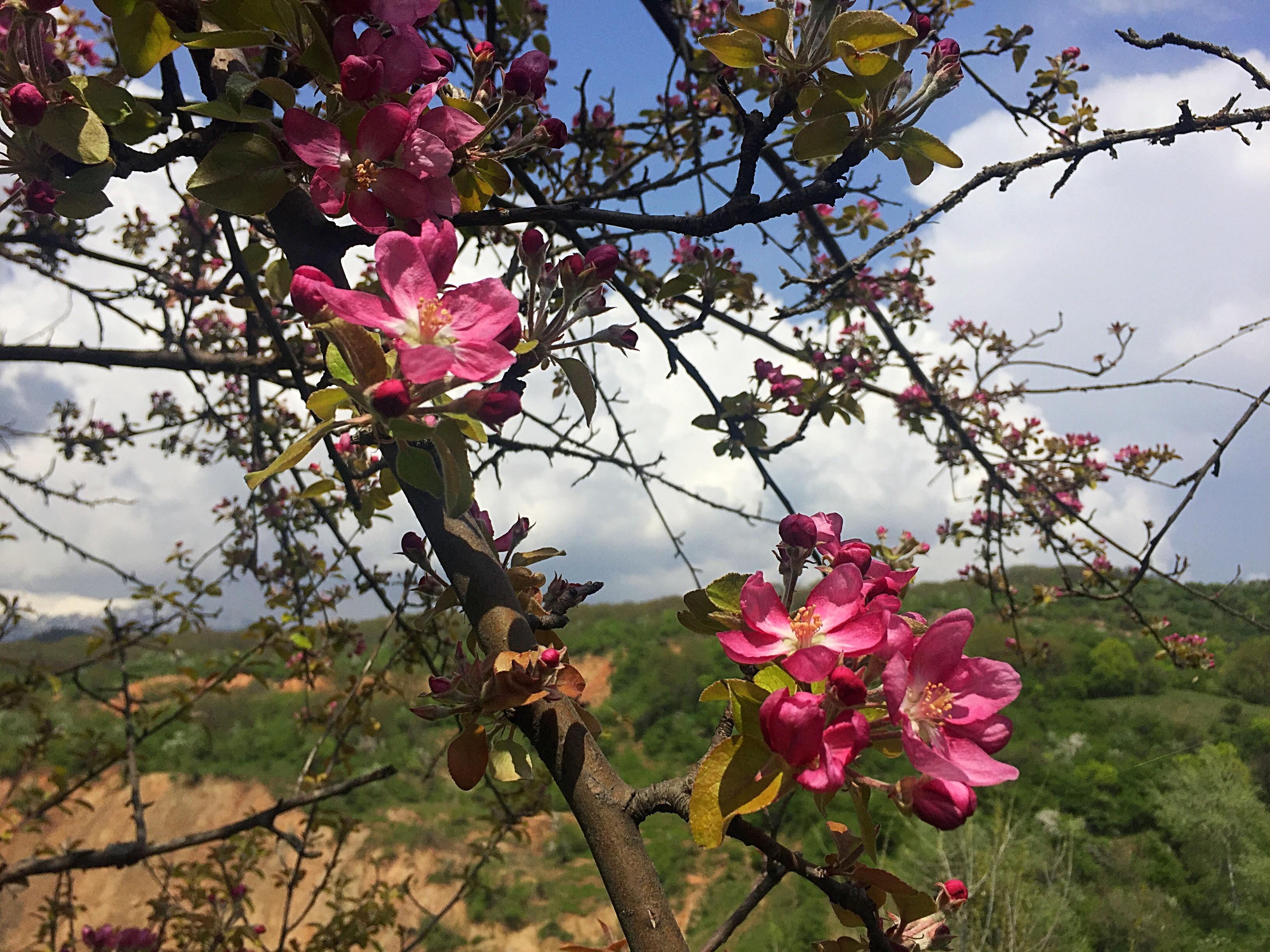Preservation of Central Asian fruit tree forest ecosystems, pome fruit varieties and germplasm from the recent epidemics caused by the invasive bacterial pathogen Erwinia amylovora (fire blight)

This project builds capacity of phytosanitary services and community engagement essential for mounting a rapid and effective defense against fire blight invasion in Central Asian countries. It contributes to the protection of forest biodiversity and the resilience of local rural economies that are dependent thereof.
About the project
Background
Domesticated apple and pear species are native of Central Asia, where they represent the dominant species in mid-altitude forests located in mountainous regions. They constitute a critical foundation for entire ecosystems of plants, insects and animals. Fire blight, caused by the bacterium Erwinia amylovora, is the most devastating disease affecting pome fruit production globally. The disease is native to North America and was imported to Western Europe in the 1950’s, spreading from west to east in the ensuing decades. Starting from 2008, the first cases were detected also in Kyrgyz and Kazakh orchards, with some recent penetrations into the natural forests. The arrival of fire blight in the center of origin of pome fruit species is a major threat to the whole forest ecosystem, the endangered flora and fauna species therein contained and local rural economies that subsist on the forest’s natural resources.
Objectives
Together with our academic and non-governmental organization partners in Kyrgyzstan, Kazakhstan and Tajikistan, we aim to understand and minimize the impact of fire blight in Central Asia by monitoring the presence and movements of the disease in natural forests and the influence of adjacent fruit-growing areas, where international commercial apple cultivars are grown. The objectives of this project are:
- the determination of the dissemination routes of fire blight to and within Central Asia by implementing targeted surveys in forests and nearby orchards in combination with molecular source tracking: this will be achieved by training local staff on disease recognition, field-applicable molecular diagnostic procedures and by developing advanced typing methods;
- to use the acquired data to obtain an unprecedented understanding of the disease dynamics in natural forest ecosystems and to assess the level of damage inflicted therein;
- to work with all partners and stakeholders to develop locally-adapted phytosanitary strategies to enhance ecological conservation efforts and crop protection;
- to add a further biodiversity protection layer through networking and consolidation of the existing germplasm preservation facilities;
- to monitor local apple varieties for relative tolerance to fire blight for use in sustainable production and breeding programs;
- to identify biocontrol agents adapted to the local conditions that can be used to combat fire blight in the orchards and in the forests.
Relevance
This r4d project offers an extraordinary opportunity to build capacity of phytosanitary services and community engagement essential for mounting a rapid and effective defense against fire blight invasion in Central Asian countries, thereby protecting the precious biodiversity of their forests and the local rural economies that are dependent thereof.
Geographic scope
- Kazakhstan
- Kyrgyzstan
- Tajikistan
Project link to P3
- Link to project on SNSF research database P3
